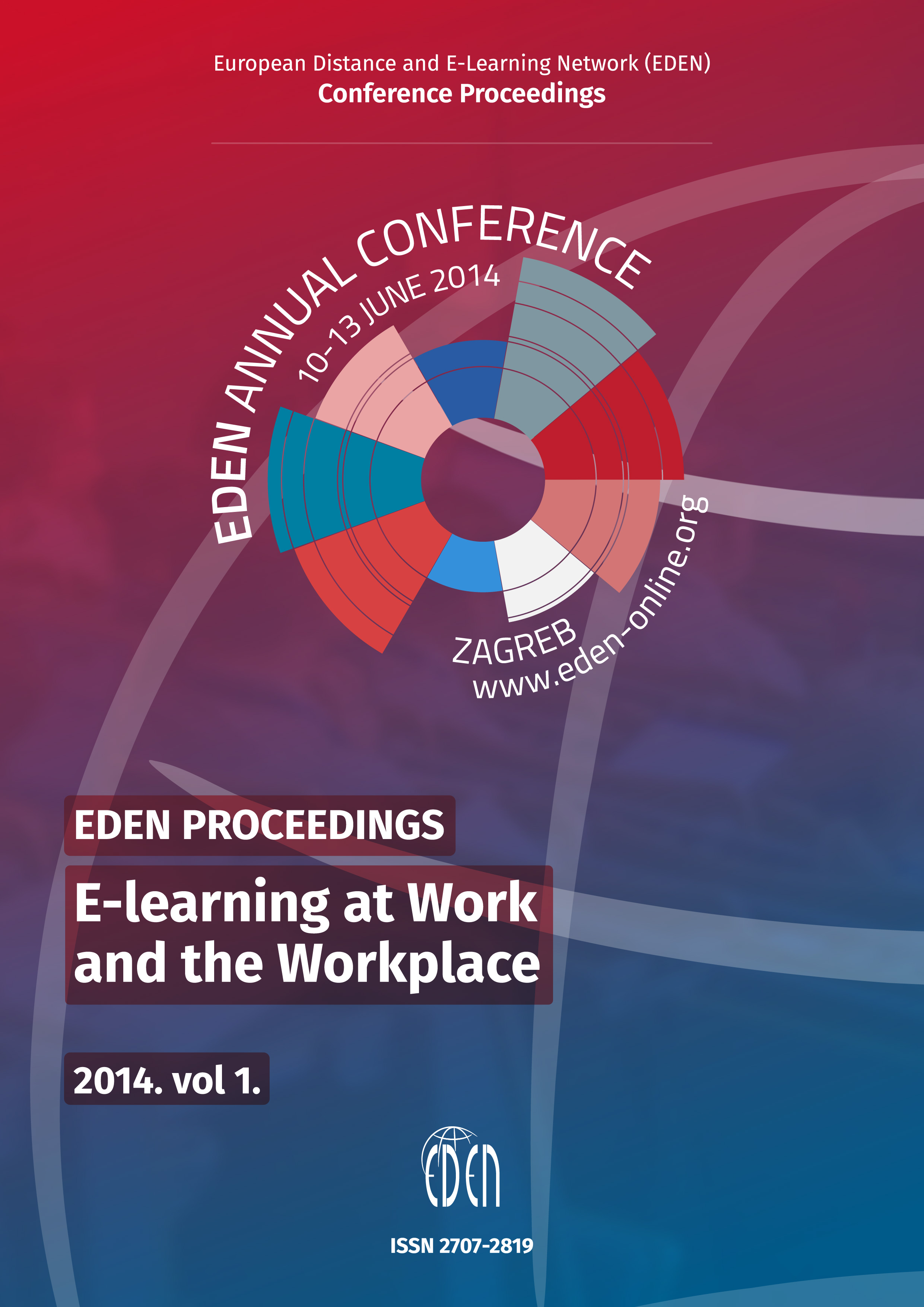The importance of collaborative learning in multi-professional continuing education
The importance of collaborative learning in multi-professional continuing education
Author(s): Lynette Nagel, Alecia Samuels, Gaby PretoriusSubject(s): Social Sciences, Education, Higher Education
Published by: European Distance and E-Learning Network
Keywords: Collaborative learning; Distance and e-learning methodology; Learning effectiveness, improvement of learning experience; Lifelong learning; Vocational training
Summary/Abstract: In response to changing demands in the workplace and the need to improve knowledge, skills and competence with a work-related focus, qualified professionals often later resume studying at higher education institutions. While the soft skills required in addition to subject matter expertise in some professions are seldom addressed in the curricula of the initial qualifications, these courses provide such an opportunity. Though e-learn- and massive online course delivery brings the learning to the workplace, persistence remains a challenge. The role of the online facilitator is instrumental in the development of a learning community wherein students are motivated to persist. Participants need a friendly social environment, scaffolding to remain on topic, guidance to learn collaboratively through interaction, so as to tap into each person’s unique knowledge and insights. The Community of Inquiry (CoI) survey has been validated to measure the quality and design of online courses, focusing on facilitation (Teaching Presence), student interaction (Social Presence) and higher order learning (Cognitive Presence). The University of Pretoria has been offering a two-year, part time, multi-professional coursework Masters programme in Early Childhood Intervention (MECI) for the past seven years. The online MECI program focused on assisting professionals such as speech therapists, occupational therapists, physiotherapists, medical doctors, nurses, educators, educational psychologists, nutrition specialists and social workers in providing early intervention services all over South Africa, the African continent and at times abroad. In order to gain from multiple perspectives, students participated in online class discussions and in smaller, multi-professional study groups. Interactions took place in asynchronous online discussions, synchronous chat rooms and onsite contact weeks on campus. The average completion rate was around 90%.
Journal: European Distance and E-Learning Network (EDEN) Conference Proceedings
- Issue Year: 2014
- Issue No: 1
- Page Range: 383-392
- Page Count: 10
- Language: English

